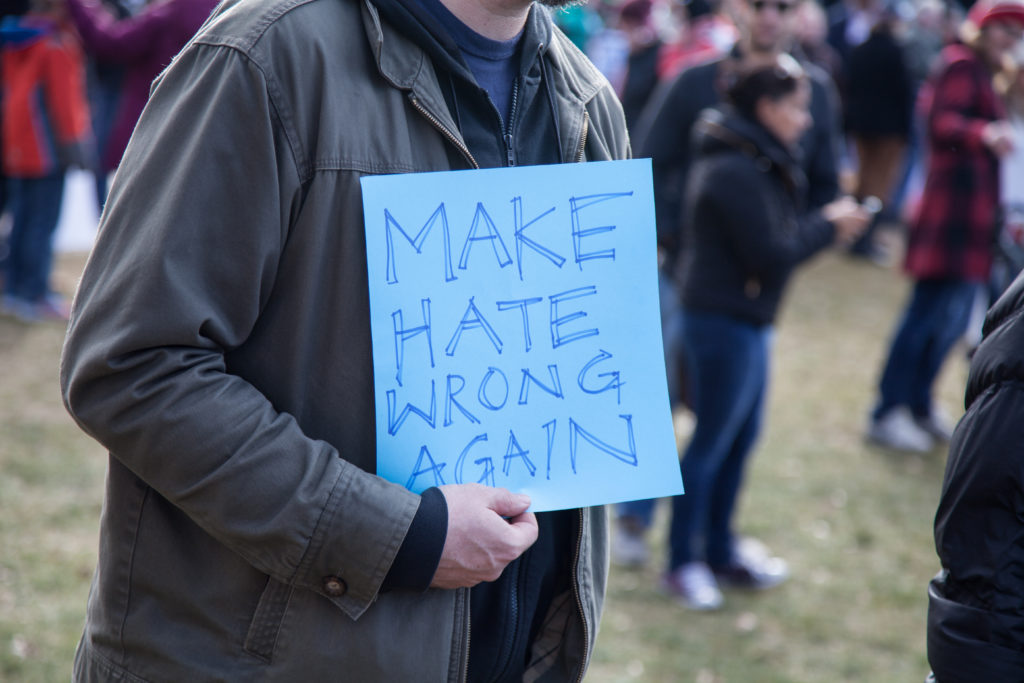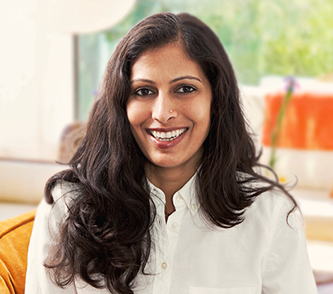I try to focus on work but like most people, I am struggling. Struggling because I am continuously processing what is happening in my home country, and how that is affecting the world as a whole.
I am an average citizen. I vote; I attempt my best at being informed; and I have healthy respectable discussions about mainstream political issues. I’ve never volunteered for my candidate of choice; never spent copious amounts of time trying to sway opinions; and never walked away from a political discussion disheartened or upset. I have also never changed my opinion of a friend or family member because of their political views. That is, until 2016.
Even though this time around I was more vocal with my opinion, I didn’t consider myself an activist. I’m not sure I do now. However, I continue to see the turmoil occurring in our world and I feel compelled to do something. But what? What can I do to affect change? Yes, I can stand/walk in solidarity with those who agree with me, I can donate to organizations that fight the good fight, or I can call my elected officials to share my thoughts (which are all valuable actions). However, I feel that the issue we are experiencing is that hate is becoming normalized again, and it is overshadowing the importance of love. Our contention with those different from us is stronger than our compassion. The essence of this issue isn’t political: it is existential.
People tell me that I am a benevolent person. I teach my kids when an argument occurs to try to attempt to understand the other side’s perspective and work to resolve any conflicts. If that doesn’t work, to learn from it, cut your losses, and walk away. It’s idealistic, I know, and it doesn’t always safeguard one from violence. However, I feel it is essential in our diverse community, to attempt to build bridges, instead of building walls.
We cannot automatically be compassionate to other perspectives all the time. Since we cannot actually empathize with the vast array of experiences possible, we cannot truly say we’ve lived in everyone else’s shoes. There are bound to be conflicts. However, conflicts don’t have to end as a win/lose situation. They don’t have to end with hatred.
For me, it isn’t the one man holding office with so much power that concerns me as much as it is the millions of people with whom I coexist embracing hatred and separation are the way to live. I have a hard time believing the people in this population respect me. To be honest, I struggle to find it in me to respect them when they show such strong convictions that hate and disrespect is better than love and compassion.
I’m not naïve: I know this population always exists in the world; that many live with the philosophy of pushing others down to bring themselves up. However, I did believe I could at the least feel safe in my community, and choose to have little exposure to people who hate.
Today I feel the hatred is palpable, as it has been many times historically. I feel that it is becoming normalized again; that we can speak openly about our hatreds in public; that we can be protected by laws to express our hatred. We allow a leader whose regular tactic was fueling hatred to hold one of the most powerful posts in the world. I don’t know how to process that. I don’t know how to continue to teach my children to have compassion and love for those who are different from us, even though I whole-heartedly believe it. I don’t know how to continue to encourage my peers to do so. I don’t know how to connect with people who hate me.
Yet, I cannot think of anything else to do. I keep going back to practicing compassion. If that does not work, perhaps keeping a distance between myself and those espousing hate, in hopes that eventually I can combat hatred with love or, at least, acceptance.
To clarify, I am not talking about being passive or submissive. What I hope for is the courage to continue to (and teach my children to) react with the respect and kindness that I want in return.
How does one practice compassion for those who are different from ourselves? How, when we cannot effectively have compassion for those whose experiences we have not directly experienced?
Well, let’s start with baby steps. I offer one tip, one little something, we can do to start:I remember hearing Aziz Ansari’s monologue on Saturday Night Live, and he spoke of Muslim people eating a plate of nachos. It was brilliant! Food is definitely a way to build commonality between people. I mean, who doesn’t love chocolate, or pizza, or fried potatoes in any form! If not through food, how about music or sports? We can even connect through common life experiences. How likely is it that you can connect with any mother about parenting a newborn, with hormones all over the place, sleep deprivation, and the biggest transition from selfishness to selflessness?
Finding commonalities like these are first steps to building connections with those with different life experiences or beliefs. While they might seem superficial, they at least crack the door open to a greater sense of compassion with people who are vastly different from us. So, the next time you come across someone different from you, find a way to connect with them. Even if you aren’t comfortable with talking to them, imagine that they probably also enjoy a good cup of a hot caffeinated beverage to start their day, instead of thinking what makes them different. Maybe your internal reaction to them will shift over time. You will possibly eventually have a neutral face or even a smile when you see them, instead of a scowl or a grimace – which in turn could encourage them to have more compassion towards you. It might not solve everything going on in the world, but it is a start in the right direction.



